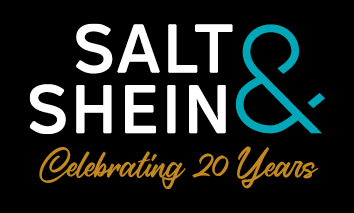The rules of lobbying
Lobbying, by its OECD definition, is the influencing of government policy on behalf of a client. As a democratic right it allows the public to express and represent their views on public issues effectively. Whether or not you are engaging in lobbying activities as communication specialist, being aware of what can and cannot be done sheds…
Lobbying, by its OECD definition, is the influencing of government policy on behalf of a client. As a democratic right it allows the public to express and represent their views on public issues effectively.
Whether or not you are engaging in lobbying activities as communication specialist, being aware of what can and cannot be done sheds some light on the somewhat stigmatised topic.

Government regulations around lobbying
Australia is one of many countries to have a Lobbying Code of Conduct as well as a Register of Lobbyists. Under these regulations, any individual, company or organisation engaging in lobbying activities on behalf of a client is required to register. Exceptions are made for non-profit organisations, charities and trade delegations among others.
As such, the register aims to guide and maintain fundamental concepts of integrity, honesty and fairness – something good communication specialists should see as integral to their everyday lives.
The Lobbying Code of Conduct
In 2013, the Australian Department of the Prime Minister and Cabinet published the Lobbying Code of Conduct as guide for expected, accepted and prohibited behaviour in regards to communicating with government representatives with intentions to influence. We have summarised some of the key points below:
- Every lobbyist is required to register with the Secretary.
- Individuals are expected to ensure their details are kept up-to-date and have 10 business days to amend these if necessary.
- Before engaging with a government representative, lobbyists need to clarify their intentions.
- All communication efforts are expected to be reasonable, honest and legal.
It should further go without saying that communication specialists attempting to influence policy need to verify the truth of all information provided by a client before it is presented to the government representative or public. To ensure fair use of influence, lobbyists are also expected not to misrepresent, mislead or exaggerate claims.

What this means for communication specialists
While the fundamental idea of lobbying is democratic, the reality is that there is a relative disproportion in representation of interests. Those entities with a lot of capital can afford to effectively lobby, whereas those with little monetary resources struggle to make their point.
Australia’s democratic society has the ability to benefit from the opportunity of voicing views publicly. However, it is essential that, if engaging in lobbying activities for a client, communication specialists consider the ethical implications of their conduct before taking action.
Discover insights.
Creating messages that cut through social media, news cycles and even the humble inbox has never been easy, but, with more noise across more channels, it’s become more important than ever to create messages that stand out and land with impact. Visual communications tools are gaining traction as a way of shaping messages that hit…
Looking for greater choice in the contract options available to you? Having history and rapport with a specialist recruiter like Fraser Clapcott will open doors to opportunities you may have missed for yourself, that add value for both contractor and employer. In the current climate of uncertainty, a willingness and propensity for flexibility comes with…
If you’ve been ruminating on changing-up your comms career, now may be the ideal time to talk with your trusted recruiter about making a move. Salt & Shein Director, Lucy Newcomb, sees significant scope for motivated communicators to broaden their career horizons, and make the job of their dreams a reality, in 2023. “A rapidly…







